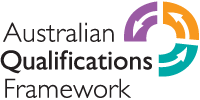This unit describes the skills and knowledge required to prioritise projects and programs within a portfolio. It covers the identification, strategic alignment and setting of priorities at the portfolio level.
A portfolio is the centralised management of one or more portfolios of projects, which includes identifying, prioritising, authorising, managing and controlling projects, programs and other related work, to achieve specific strategic business objectives.
The unit applies to individuals who operate at the strategic level within the organisation. Unlike projects or programs, a portfolio does not have a finite life, instead it is a continuous process and requires regular tending to ensure the portfolio remains in balance and is consistent with the strategic objectives of the organisation.
No licensing, legislative or certification requirements apply to this unit at the time of publication.








